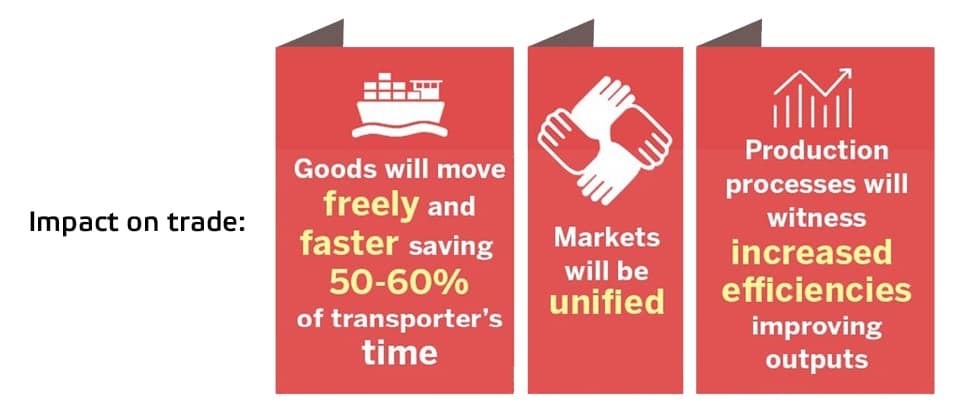The proposed Goods & Services Tax (GST) will be a game-changing legislation for indirect taxation in India. The current system of multiple taxes and state-level credits and tax breaks create a complicated tax mechanism and mire logistics operations in India. GST will replace this layered system and bring the entire country under one unified tax regime governed by the central government. It will bring efficiencies in the dynamics of doing business. More importantly, it will be beneficial to the inter-state sale of manufacturing goods. Read on to know how:
GST will reduce the level of material and document scrutiny at border checkpoints
The material and document scrutiny at location checkpoints, especially at state borders is an obstacle for free movement of goods.
The GST proposes to do away with these geographical bottlenecks and speed up transportation time that will result in faster turnarounds for transporters.
It will ensure that India is on par with the international standards in terms of time taken for transporting goods across distances.
GST will encourage warehouse consolidation
The current method of opening up warehouses across states to take advantage of the tax breaks and incentives offered by states, needlessly lengthens the supply chain and consequently, the delivery times. Under the GST regime, the states may not be able to provide tax incentives anymore, thus negating the need for multiple warehouses.
GST will reduced vehicle idle time
GST is expected to drastically reduce the idle time of the transporters and lead to greater efficiencies in transportation.
GST will lower operating costs
Due to reduction in idle times, the transit times will be shorter leading to lower transportation costs for corporates involved in inter-state sales.
GST will transform the logistics industry
The introduction of GST will remove the loopholes and eliminate the existence of these unorganised players.






